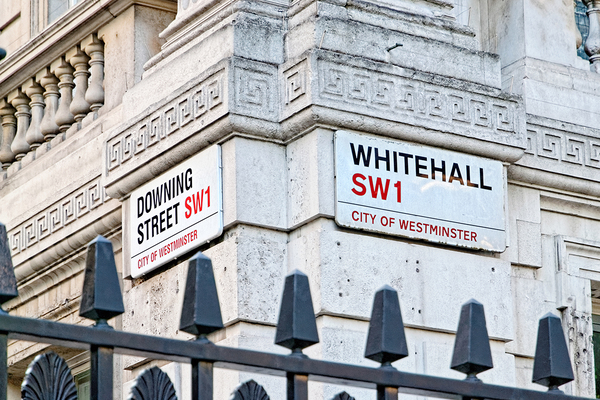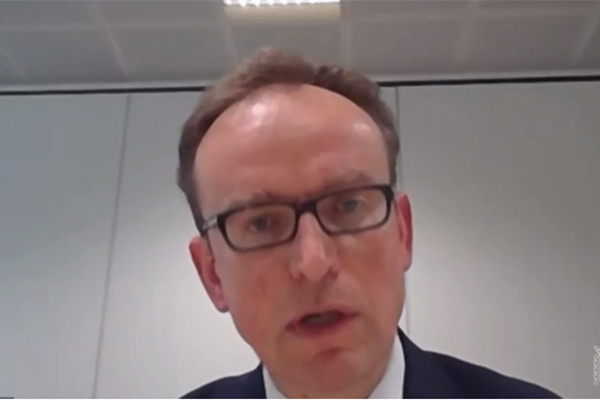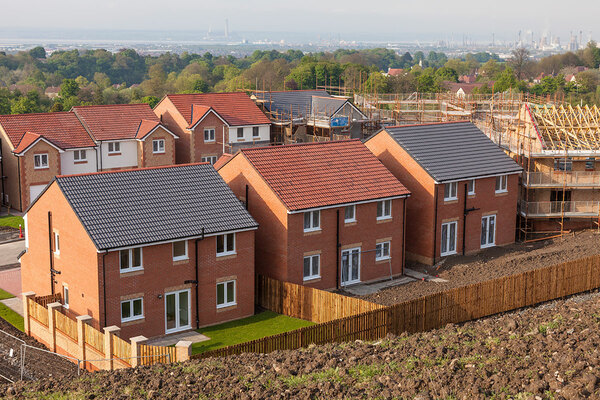You are viewing 1 of your 1 free articles
The five ways government is failing on housing policy according to the Public Accounts Committee
The influential Public Accounts Committee’s assessment of government housing policies over the past few years will make difficult reading for ministers. Dominic Brady takes a look at the key criticisms put forward

“Deplorable” is not how any government department would want its policy approach to be described, but that is the view expressed by the Public Accounts Committee (PAC) in a new report published today on the Ministry of Housing, Communities and Local Government’s (MHCLG) handling of major housing programmes in England.
The select committee, made up of cross-party MPs, has examined housing policies going back to 2015 and warns that the current government risks repeating old mistakes.
It is not unusual for these sorts of reports to criticise the government; after all, they are supposed to find ways in which things can be managed better in future.
But the language used in the report goes far beyond pointing out room for improvement, amounting to nothing short of a savaging of MHCLG.
The committee points to a “cycle of policy invention, abandonment and reinvention, stringing expectant young people along for years, and wasting time and resources on policies that come to nothing as ministers come and go with alarming frequency”.
Unsurprisingly, the government has fiercely rejected the committee’s findings. A spokesperson for MHCLG said: “These false claims ignore the facts. They are misleading and we reject them. Since 2010, over 663,000 households have been helped into home ownership through government schemes.”
Below, Inside Housing breaks down the five main points of criticism.
1) No clear plan to reach 300,000 new homes target
The government is currently targeting 300,000 new homes per year by the mid-2020s, but the PAC report argues it is not clear how this goal will be met.
Government figures show that 243,770 net additional dwellings were delivered in 2019/20. That is the highest number for more than three decades, but still a considerable way off hitting its target. PAC said the government is failing to set out a clear path to reaching the overall target and as such it cannot measure progress or assess value for money.
The report said: “The department asserts that the ambition is ‘incredibly challenging’, made more so by the current uncertain housing market conditions. It claims that this makes it impossible to be transparent over the path to meet this ambition as it is in part dependent on how developers respond to market conditions.”
The committee urged the government to set out how policies, such as First Homes, will contribute to the overall goal, adding that it was “frustrated” it has had to repeat this recommendation.
2) Insufficient definition of what ‘affordable’ means
The select committee also urged ministers to clarify exactly what is meant by ‘affordable homes’ and to fully understand how much they cost to deliver.
MPs noted that MHCLG has admitted that ‘affordable’ can mean different things in different settings, but government definitions do not reflect this. Instead, Homes England relies on the definition set out in the National Planning Policy Framework which says it includes “homes for rent, sale or shared ownership at less than market rates”.
PAC’s report adds: “We are concerned that the cost per affordable home of those funded by money intended for Starter Homes appears much greater than the cost per affordable home delivered by local authorities.”
It recommended MHCLG write to the committee within one month, setting out a clear definition of ‘affordable housing’ and whether the definition may vary for different circumstances and geographies.
MHCLG said it is investing £12bn in affordable housing over the next five years – “the largest investment in a decade”.
3) Closer working needed with housing sector
“Success in delivering housing relies on close working with local authorities, good relationships with developers, and maximising value for money from the public subsidy of housing,” PAC said.
Without engaging with the sector the government, risks “losing sight” of the needs of those who are unable to buy their own homes and merely continue to fixate on homeownership.
Policies such as Starter Homes and First Homes reflect this drive towards homeownership but fail to address issues of homelessness and people stuck in temporary accommodation, according to the committee.
With this in mind, it recommended that the government should capitalise on new technology such as modular construction which it said could be used to create “smaller, cheaper homes”.
4) The failure of Starter Homes
In the 2015 Conservative manifesto, David Cameron committed to building 200,000 Starter Homes to be sold at 20% for first-time buyers under 40. The ambition failed miserably, with not a single Starter Home being built and the policy being abandoned entirely earlier this year – but not before an eye-watering £174m was spent on the policy.
The committee, led by Labour MP Meg Hillier, said: “We deplore the time and resources wasted by the department as it let the Starter Homes policy drift out of existence.”
Overall 85,000 people registered their interest in Starter Homes but were not told it was no longer an option until 2020.
PAC suggested that going forward the government should be open with parliament and the public when policies are changed or abandoned and should do so in a timely manner.
5) First Homes plans lack transparency
The committee report notes that First Homes has similar aims to the ill-fated Starter Homes programme, albeit offering a discount of up to 30% rather than 20%.
A key issue PAC has with the latest affordable homeownership scheme is that the government is unable to say when it will be available to first-time buyers and warned against promoting another policy it cannot deliver on.
“This cycle of policy invention, abandonment and reinvention, stringing expectant young people along for years, and wasting time and resources on policies that come to nothing as minister come and go with alarming frequency, is deplorable,” the MPs said.
The report also warned that the First Homes scheme relies on a “complex mechanism” of developer contributions.
As such, PAC argues that the upcoming First Homes pilot should model the effect of funding First Homes from developer contributions on local authorities’ ability to fund local infrastructure and other housing needs, such as social housing, and what the opportunity cost is of using developer contributions in this way.
But MHCLG insists the First Homes scheme “will help local people and key workers buy their own home, in the area they already live, at a discount of 30%”.
Sign up for our daily newsletter
Already have an account? Click here to manage your newsletters












